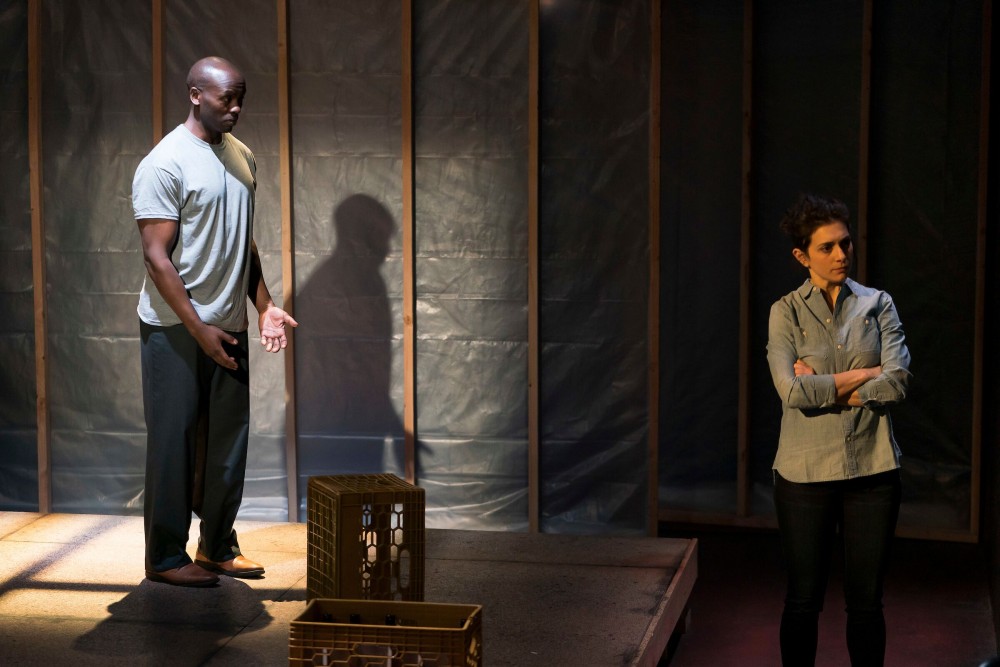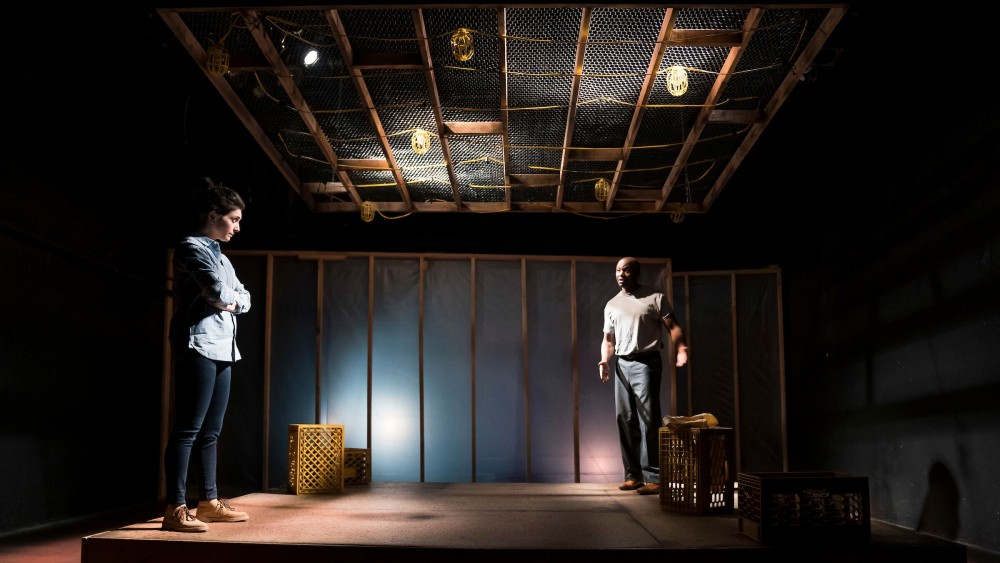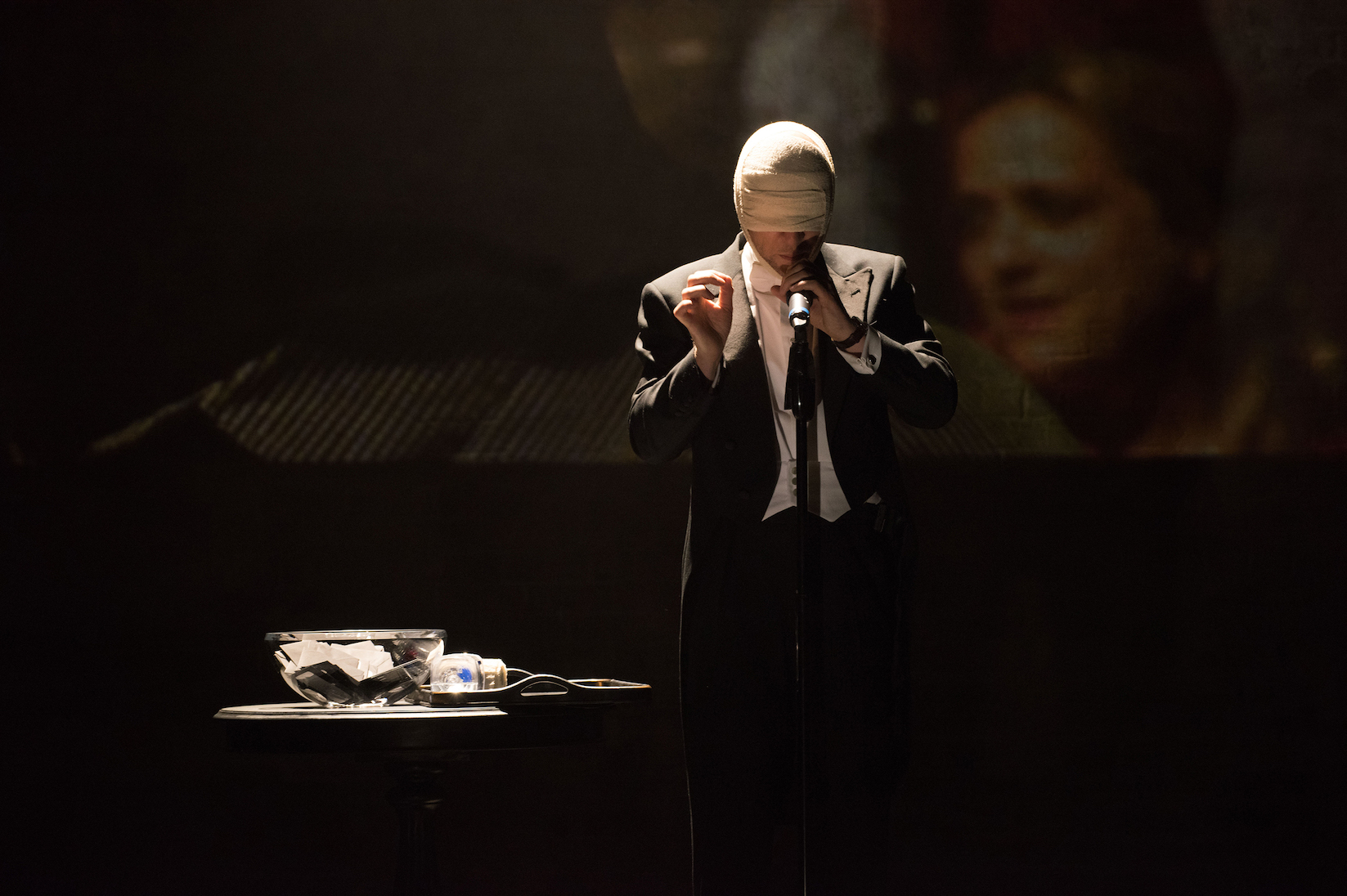By Tania Fisher
Urban Stages once again brings top quality theater and well-deserved exposure to new writers, with Death of a Driver written by the talented recipient of the “Emerging Playwright Award,” Will Snider. Snider provides an intriguing and entertaining story that will keep you captivated and intrigued from start to finish.
Sarah, a young American white female engineer arrives in Kenya with a big idea to build new roads and subsequently enhance a country’s infrastructure. She takes a long ride in a taxi driven by a local black man, Kennedy. They have a few drinks together, and a business project is soon underway.
During the span of this one act play, we become involved in their lives, appreciating their friendship, their work ethics, their morals, and their cultural differences.
Snider’s authentic dialogue grabs you and pulls you in right from the start, with an ability to convey exactly who the characters are and their intentions in a fully formed and realistic way that is both engaging and economical.
Snider pours his own personal life experience into this wonderfully entertaining piece, having worked in agriculture micro-finance in Kenya and Ethiopia and his background of specialized education in post-colonial East African history. There is nothing artificial or sweepingly dramatic-for-art’s-sake in this play; it is absolutely real, genuine, and completely believable in its entirety.
The story delves much deeper than merely a facade of a scenario of a privileged white person from a wealthy country come to implement their grand scheme to help an impoverished country. Snider gives us real relationships, unlikely friendships, all against the backdrop of a unified ambition to achieve a worthy goal while in a place of constant political upheaval. It poses the question, but also explores how we currently answer; how to accomplish transnational work in an ethical manner. It lends itself to the ideas and themes that the more materially transformational foreign-led work is and seemingly assists, then the more it actually sustains the political status quo which concludes in being ineffective and in some cases this help is, therefore, viewed as oppressive, and hence results in a bad government taking credit for any good work actually achieved. But that on the other side of this, if there is no intervention at all from foreign intercession and nothing is done because of a belief system that the problems should be resolved by local politics, then apathy can set in and nothing gets solved or fixed.
Sarah Baskin plays Sarah, the well-intentioned, enthusiastic engineer who is ready to come in and get done what Kenya’s government won’t; a new system of roads, enabling better transport, more opportunities for trading and communication, access to education, and accessibility to better infrastructure. She enlists the help and support of Kennedy, played by Uganda native, Patrick J. Ssenjovu. Kennedy speaks plainly and truthfully, and always direct. He brings his local contacts and knowledge to the foreground to become a pivotal part of the building of Kenya’s new road system. Kennedy’s political activism will later threaten the good work achieved and bring doubts to Sarah’s mind about the project’s integrity as well as question her friendship with him.
Both Baskin and Ssenjovu’s performances are strong, clear, natural and come from an authentic place. Ssenjovu’s delivery is enchanting and somewhat beguiling; an absolute pleasure to watch. Baskin skillfully provides multiple layers to her youthful and naïve character, with sincerity and tact.
Direction by Kim T. Sharp seems to have allowed the actors to strip themselves of cumbersome paraphernalia and rely solely on their characterizations and dialogue which has been a refreshing choice that suits the play well and even lets it benefit from the scant imagery it conjures to parallel with that of Kenya’s landscape. This is complimented by a minimalistic set skillfully designed by Frank J. Oliva, where the action takes place on a square raised platform of wooden planks laid out on cinder blocks with only a few plastic crates scattered on top which all cleverly serve to emulate a construction site. The square-ness and sparseness of the raised “stage within a stage” hints at sometimes appearing, in an existential sense, as that of a chess board, where the actors move and react with each other as from positions of power with the push and a pull of a chess game.
Sound Designer Ian Wehrle with Original Music provided by Abou Lion Diarra have culminated their talents to provide outstanding and meaningful audio moments that give pertinent emotional weight throughout the play that at times proved quite haunting.
A thoroughly enjoyable and entertaining play with the highest of qualities across the board.
Photos: Ben Hider
Death of a Driver Urban Stages, 259 West 30th Street
www.urbanstages.org/deathofadriver
Opened March 4th, running until March 24 Running time: 1 hour 20 mins (no intermission)

























